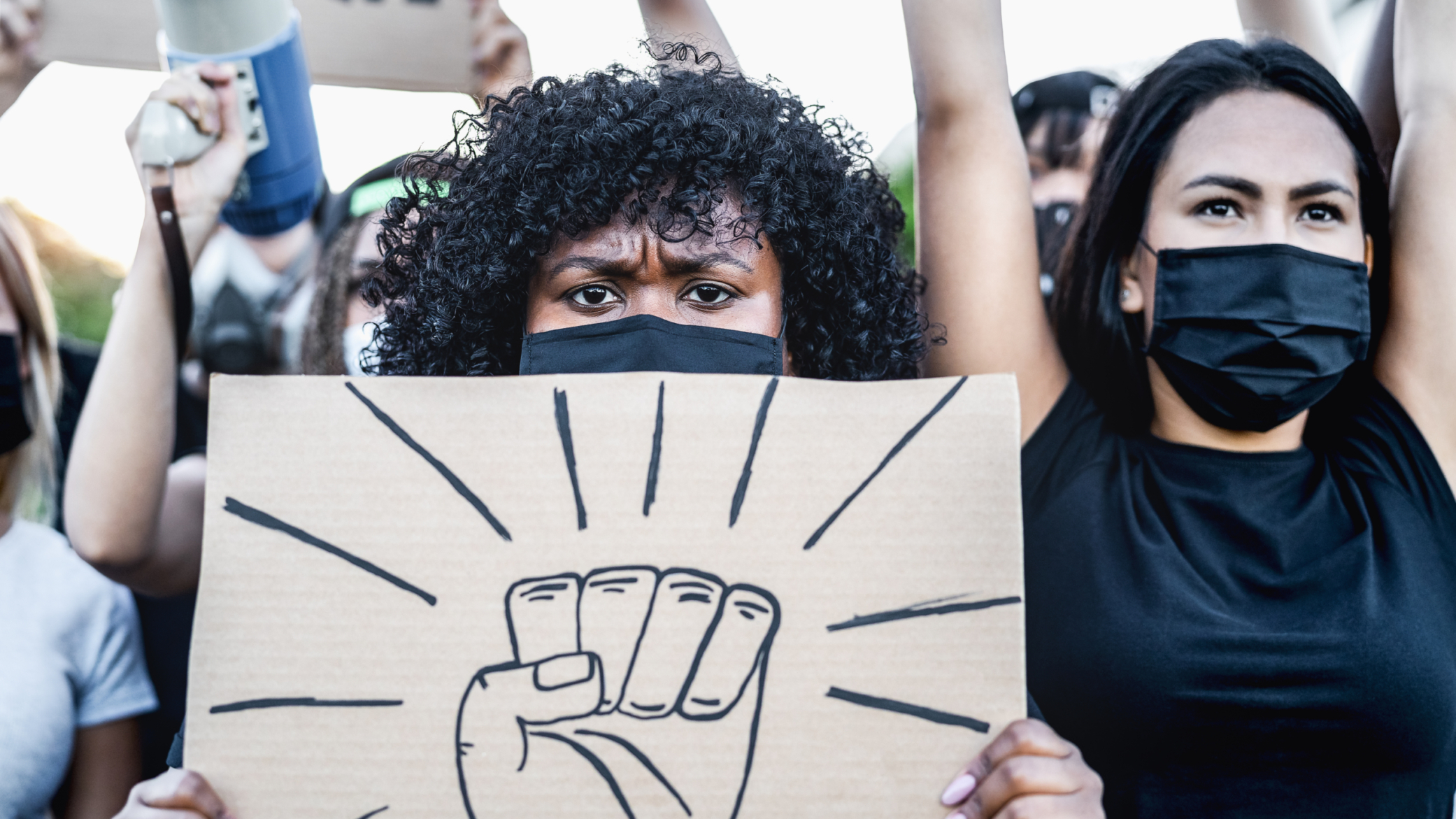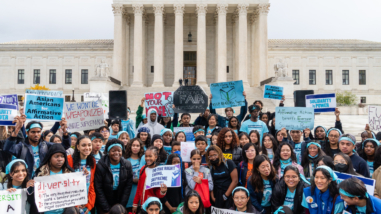Our commitment to racial justice starts with learning

I’ve dedicated most my life to education and equity — whether as a program officer in the Hewlett Foundation’s Education Program, as a leader at two education nonprofits that were also funded by Hewlett, or as a Congressional staffer. I’ve done this because I believe deeply in the power of learning to change lives and mindsets, and because I know that prioritizing equity is an essential part of helping everyone — particularly those most impacted by systemic racism — lead healthy, fulfilling lives.
That same commitment to learning and equity is now at the heart of my work as Hewlett’s first-ever Chief of Equity and Culture, and it was central in the decision to spend my first months in the position talking to colleagues to deepen my understanding. What I heard was a chorus of people actively committed to integrating racial justice and equity into their own work and eager for an ambitious, proactive approach to advancing racial justice across the foundation’s operations, culture, and grantmaking.
I’m heartened to be joined in this work inside the foundation by members of our new Culture, Race, and Equity team: Rosa Maria Castaneda, who brings deep expertise in philanthropic strategy, advocacy, and racial justice; Edit Ruano, a communications strategist skilled in media relations, inclusive storytelling, and grassroots engagement; and Morgan Reams, a program associate with experience in effective philanthropy. Our still-developing Culture, Race, and Equity team has moved quickly to respond to this desire within the foundation — and the needs of the field — by developing tools, resources, and supports to ensure every Hewlett team member is helping advance the cause of racial equity and justice. And we’re doing this while laying the foundation for a $150 million racial justice grantmaking strategy.
In the hope that we can help others on a similar path, here’s just a taste of how we at the Hewlett Foundation are beginning to more deliberately tackle issues of racism, inequity, and injustice.
A Framework Rooted in Shared Liberation
To shift from an ad hoc approach to one with a shared foundation, Hewlett is adopting a “Focusing on What Matters” framework to assess and address issues of diversity, equity, inclusion, and racial justice across the foundation. Rooted in liberatory design, which provides the flexibility needed to address complex and challenging issues like systemic racism, the tool is facilitating conversations that lead to action in four areas: people and partners; programs; policies; and practices. Notably, the framework is already informing Hewlett’s revision of our approach to Outcome-Focused Philanthropy, and we plan to adopt it across the entire organization in the next year. We’ll also soon share it as a public resource for others.
Support for Organizational and Individual Growth
Learning is most impactful when not done alone. That’s why every Hewlett team and all program directors receive coaching support as they work to integrate diversity, equity, inclusion, and justice more fully into their work. This spring, one-on-one coaching will be offered to every staff member at the foundation. We are also continuing an organization-wide racial justice learning series that contextualizes the Black experience in the U.S. and will soon examine the experiences of other racialized identities in the U.S. and beyond.
Funding that Leads to Long-term Change
We are a grantmaking institution first and foremost — one that annually provides over $600 million in grants to organizations around the globe. We are therefore focused on ensuring that our core and most important asset, our funds, also drive progress toward racial justice.
Since 2020, the foundation awarded $18 million to the Democracy Frontlines Fund and 15 other organizations advancing the cause of racial justice across a broad swath of issues, from health to education to human rights. We also provided $5.5 million to nearly two dozen nonprofit organizations serving Asian, Asian-American, and Pacific Islander communities. And last year, we granted $7 million to support a number of racial justice efforts, including research on racial diversity in financial services by SPARQ; research and communications related to race and economy by The Sum of Us; support for emerging leaders through the establishment of CUNY’s Leadership Center for Democracy and Social Justice; and funding to re:power to help transform how we think about power, who holds it, and how it is wielded.
These early grants have boosted our understanding of where our foundation can be most impactful. They, along with the framework and conversations with racial justice leaders, are helping refine our approach to our 10-year, $150 million racial justice grantmaking. Rather than advance racial justice through an independent strategy, the foundation is now exploring how to leverage these resources to advance racial justice across the foundation’s entire grantmaking portfolio. This will allow us to adopt a systems approach while taking advantage of the expertise that already exists within the foundation. Early possibilities we are considering include:
- Creating an advisory council comprised of racial justice leaders to inform learning and grantmaking for all of foundation’s racial equity work;
- Increasing flexible funding for racial justice organizations that work on multiple issues in which the Hewlett Foundation already engages;
- Identifying collaborative grants between Hewlett programs to drive racial justice within the fields where we have expertise and relationships; and
- Continuing rapid response grantmaking to address emergent needs from Black, Indigenous, and other people of color.
A Humbling Moment
While the Hewlett Foundation has made significant progress, we know that the road ahead is long and there’s much work to do. The next year will require us to continue make good on the pledges we made and the aspirations we set. This means ensuring that we can get funding out the door to meet the needs of Black, Indigenous, and other people of color while developing our grantmaking strategy. It also means continuing to share progress and challenges along the way.
This is a humbling moment. What gives me hope is that I am not alone in this journey, and I know that the experiences and expertise of communities most impacted by racial injustice will guide me and my colleagues. I look forward to continuing to not only share what we are doing and learning but also to continuing to help the foundation play a small role in positively transforming our society.



